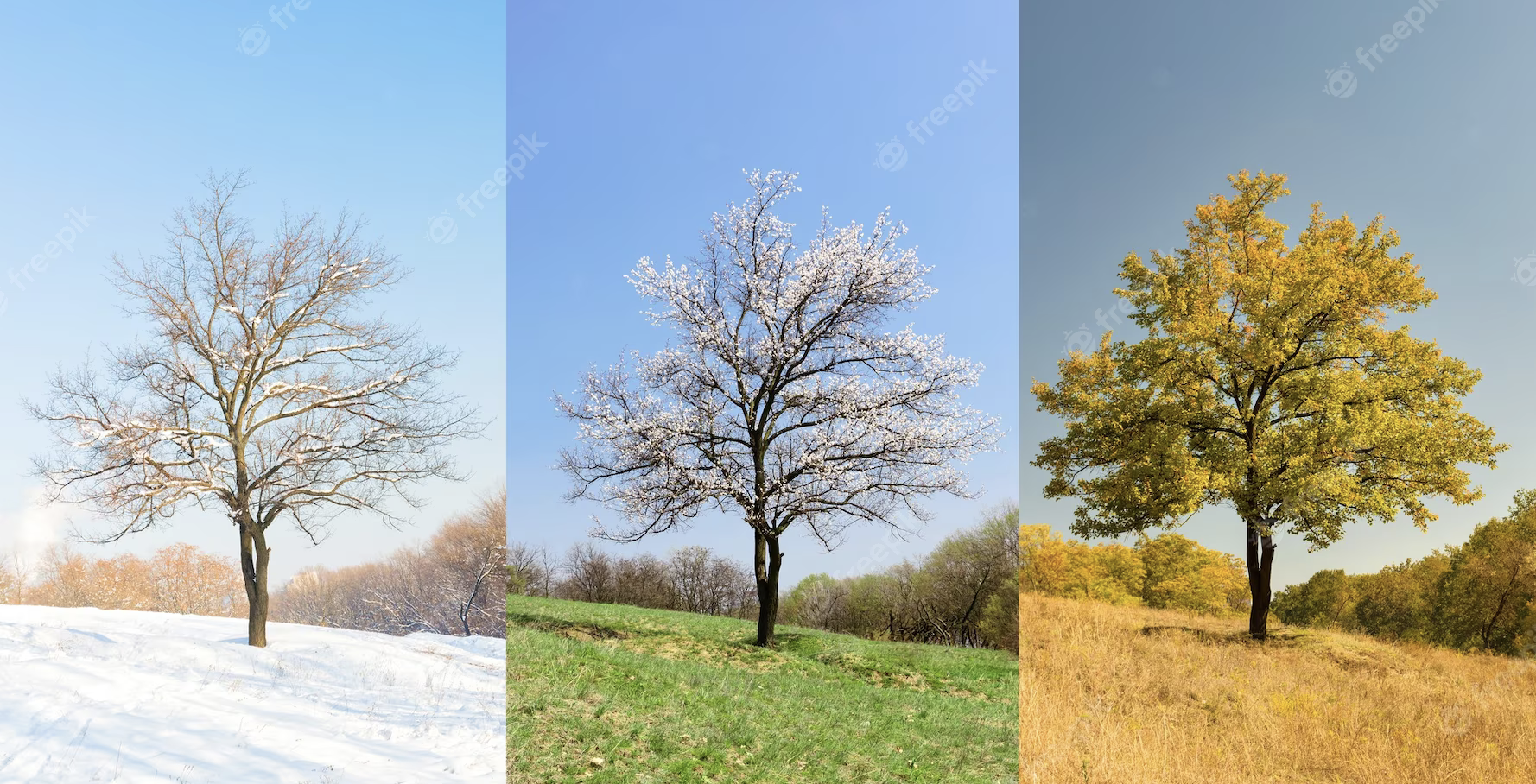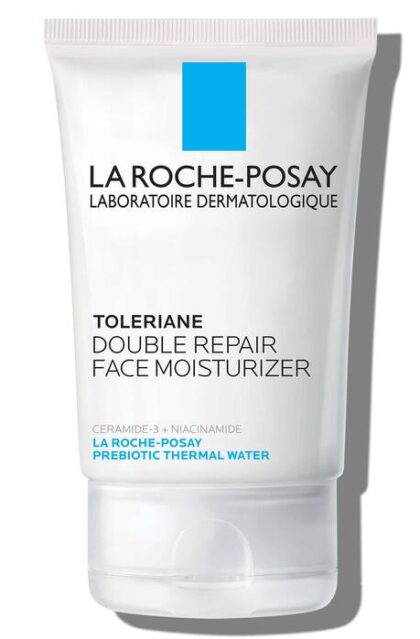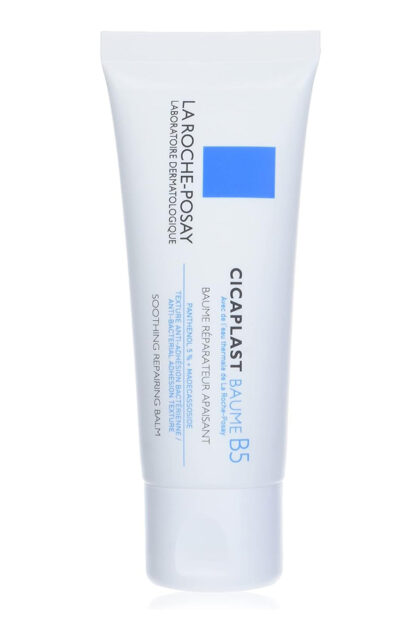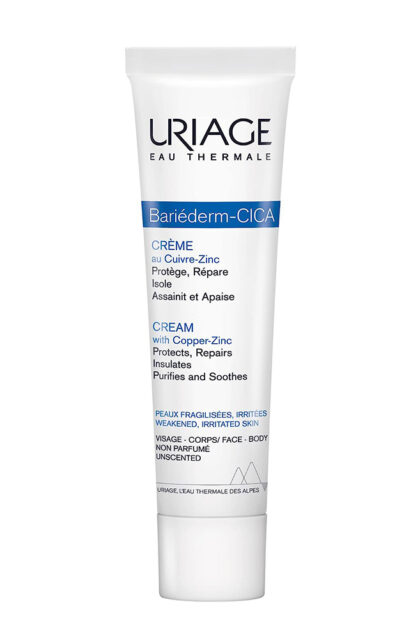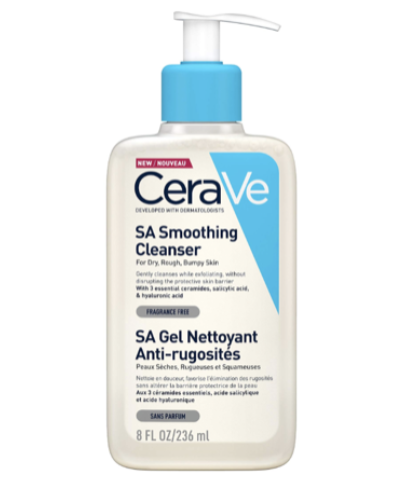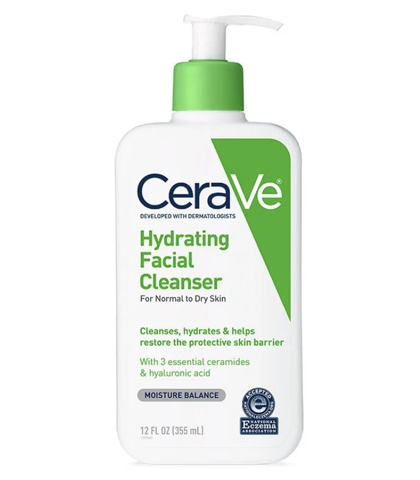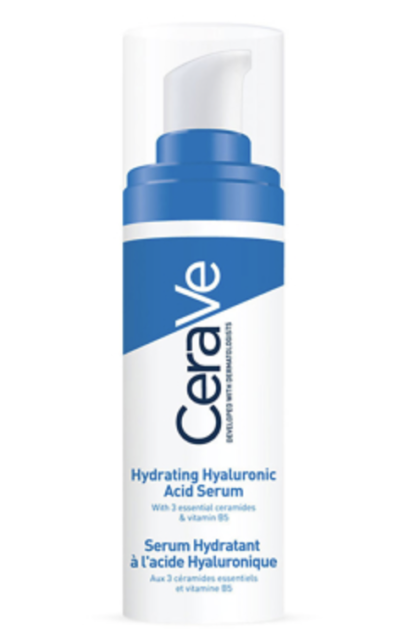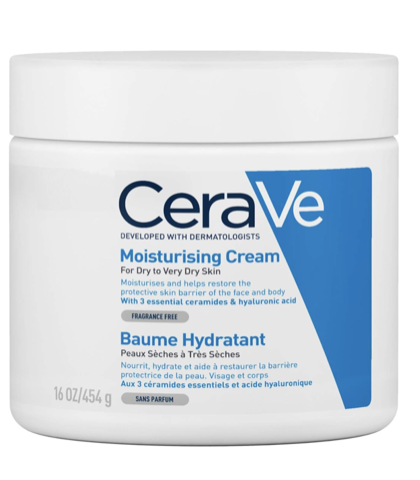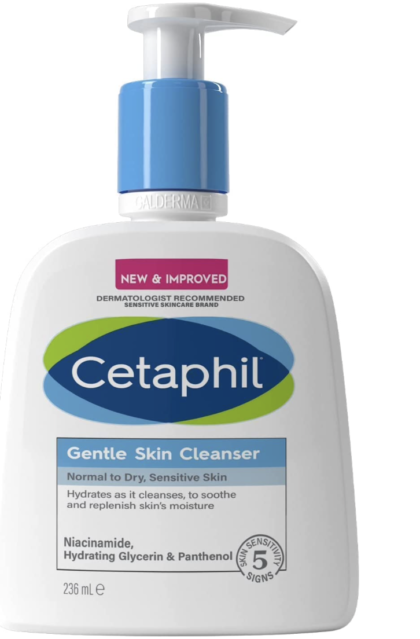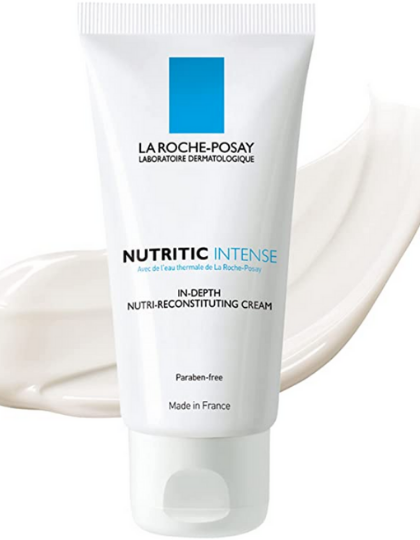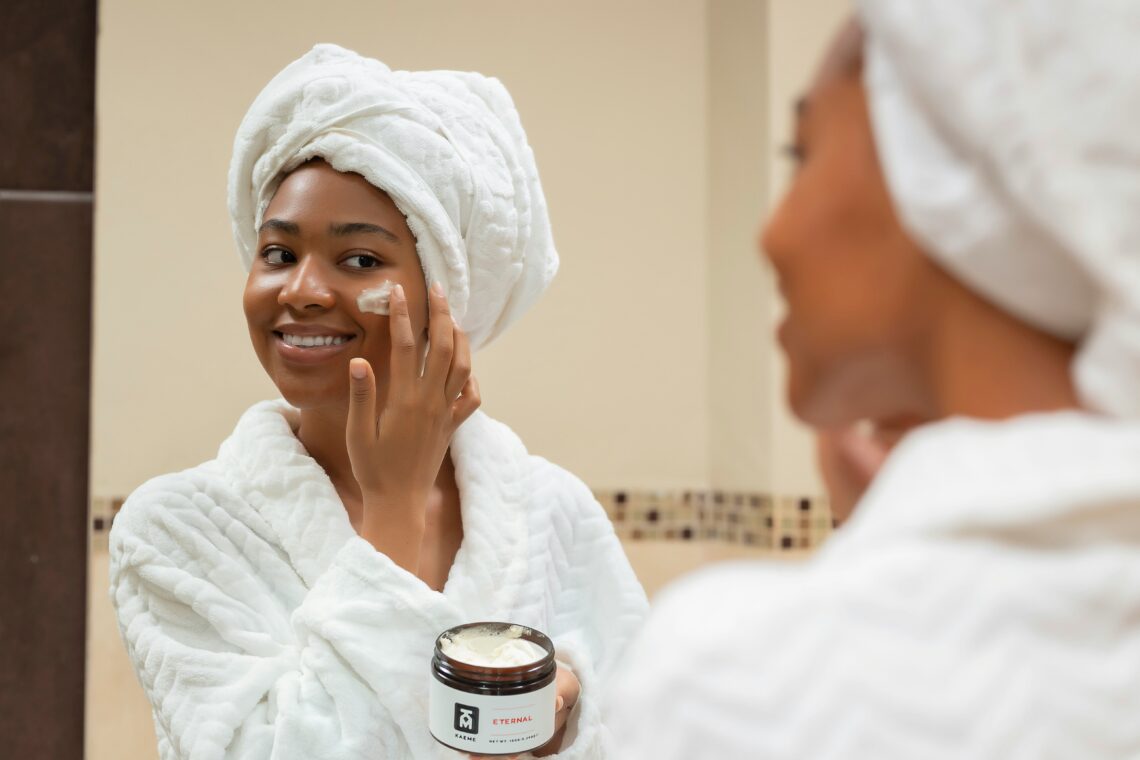What are the seasons in the UK?
- Spring (March, April, May)
- Summer (June, July, August)
- Autumn (September, October, November)
- Winter (December, January, February)
Introduction
Many UK people struggle with their skincare routine in the summer and winter seasons. First and foremost, due to the combination of heat, more sun exposure, and greater humidity levels throughout the summer, people with dry skin may experience particular difficulties. These elements may make dryness worse and cause other discomforts.
The following are some difficulties that people with dry skin typically encounter in the summer:
- Dehydration can make dry skin feel even drier because of the hot weather’s increased sweating. Due to a damaged skin barrier, dry skin is more prone to moisture loss. The skin may feel tight, itchy, and uncomfortable as a result of moisture loss and sweating.
- Sunburn: Due to the lack of natural oils and moisture that offer some level of protection against UV radiation, dry skin is more vulnerable to sunburn. Long-term sun exposure can worsen dryness by causing redness, irritation, and additional moisture loss.
- Air conditioning: Although it can help you escape the heat, air conditioning can also make you feel dry. Air conditioners dry out the indoor atmosphere, which can further dehydrate the skin, by removing moisture from the air.
- Excessive heat and sweating: Heat waves and excessive perspiration might upset the skin’s normal equilibrium. Skin irritation, clogged pores, and breakouts can result from the interaction of perspiration and dryness.
- Overuse of drying skincare products: People may be tempted to use harsh cleansers or astringents that can strip the skin of its natural oils in an effort to counteract summer sweat and oiliness. Dryness may be made worse and the moisture balance of the skin may be disturbed.
Here are the vital tips for a good skincare routine in the summer season:
- Cleanse with a Gentle Cleanser: Start your routine by using a gentle cleanser that effectively removes sweat, oil, and impurities without stripping the skin. Look for a cleanser with hydrating ingredients like aloe vera or cucumber to refresh and soothe the skin.
- Exfoliate Regularly: Exfoliation is crucial to remove dead skin cells and unclog pores, especially in the summer when sweat and sunscreen can lead to build-up. Opt for a gentle exfoliator or a chemical exfoliant containing AHAs or BHAs to reveal smoother, brighter skin. However, be mindful not to over-exfoliate, as it can disrupt the skin’s barrier.
- Hydrate with a Lightweight Moisturizer: Even though the weather is warmer, don’t skip moisturizer. Look for lightweight, oil-free moisturizers or hydrating serums that provide sufficient moisture without feeling heavy on the skin. Hyaluronic acid-based products can be particularly beneficial in retaining moisture. Find out more about why hydration is important to dry skin here.
- Apply Sunscreen Daily: Sun protection is essential throughout the year, but it becomes even more crucial in the summer when UV radiation is stronger. Choose a broad-spectrum sunscreen with a high SPF (30 or above) and apply it generously to all exposed areas of the skin. Reapply every two hours, especially if you’re spending extended periods outdoors or swimming.
- Use Antioxidant Serums: Antioxidants like vitamin C help protect the skin against free radicals and environmental damage caused by sun exposure. Incorporate a vitamin C serum into your routine to brighten the skin, fade hyperpigmentation, and boost collagen production.
- Hydrating Face Mists: Face mists can provide instant hydration and refreshment during hot summer days. Look for mists that contain hydrating ingredients like aloe vera, rose water, or cucumber extract. Spritz them on your face whenever you need a quick pick-me-up or to combat heat-induced dryness.
- Eye Cream: Don’t forget to care for the delicate skin around your eyes. Use a lightweight eye cream to keep the under-eye area hydrated and minimize the appearance of puffiness and fine lines.
- Lip Protection: Lips can become dry and chapped during the summer. Apply lip balm with SPF to protect them from sun damage. Look for balms with hydrating ingredients like shea butter or coconut oil to keep your lips moisturized.
So what about during the winter season?
For people with dry skin, winter poses its own set of difficulties. The skin’s moisture levels can be greatly impacted and made worse by dryness by the cold weather, low humidity levels, and indoor heating. The following are some typical issues that persons with dry skin encounter in the winter:
- Low Humidity: Because cold air absorbs less moisture, the humidity is low in the winter. This dryness in the air can cause more water to evaporate from the skin, making it tight, flaking, and dry.
- Heating systems used indoors, such as central heating or portable heaters, can cause dry skin. These heating techniques lower indoor humidity levels, thus reducing the moisture content of the skin and aggravating dryness.
- Long, steamy showers and baths are enticing throughout the winter months to help you warm up. Hot water, on the other hand, can deplete the skin’s natural oils, causing dryness and irritability. Long-term contact with hot water can damage the skin’s protective barrier, leaving it more vulnerable to moisture loss.
- Harsh Weather: Wintertime is frequently accompanied by icy winds, snow, and subfreezing temperatures. These abrasive weather conditions can aggravate already sensitive skin by causing windburn, chapping, and skin irritation.
- Indoor Allergens: The skin is exposed to possible allergens including dust mites, pet dander, and mould when spending more time indoors in the winter. Skin irritation and dry areas can be caused by allergic responses.
- Lack of Hydration: People tend to consume less water in the winter than they do in the summer. Insufficient hydration can make dry skin problems worse and make the skin feel tight and parched.
Here are the vital tips for a good skincare routine in the winter season:
- Use a Gentle Cleanser: Opt for a mild, hydrating cleanser that effectively cleanses the skin without stripping its natural oils. Look for cleansers with ingredients like ceramides or hyaluronic acid to help retain moisture.
- Exfoliate Gently: Regular exfoliation is still important in winter to remove dead skin cells and promote cell turnover. However, choose a gentle exfoliator to avoid over-exfoliating and irritating the skin. Consider using chemical exfoliants with AHAs or BHAs, as they are less abrasive than physical scrubs.
- Hydrate Intensely: Invest in a richer, more emollient moisturizer during winter to provide deep hydration and create a protective barrier on the skin. Look for moisturizers with ingredients like shea butter, ceramides, or hyaluronic acid to replenish moisture and prevent moisture loss. Find out more about why hydration is important to dry skin here.
- Layer Hydrating Serums: Incorporate hydrating serums or facial oils into your routine to provide an extra boost of hydration. These products can be applied before your moisturizer to lock in moisture and improve the skin’s hydration levels.
- Protect Your Skin: Even though the sun may not feel as intense during winter, it’s still important to protect your skin from harmful UV rays. Use broad-spectrum sunscreen with at least SPF 30 on exposed areas, especially when spending time outdoors.
- Combat Dry Air: Combat the dry indoor air caused by heating systems by using a humidifier in your home. This will help add moisture back into the air and prevent excessive drying of the skin.
- Treat Your Lips: Lips are prone to dryness and chapping during winter. Apply a nourishing lip balm with ingredients like shea butter or beeswax to keep your lips moisturized and protected from harsh elements.
The product we recommend specifically for dry skin:
-
La Roche-Posay Toleriane Sensitive Double Repair Moisturiser
-
La Roche-Posay Cicaplast Baume B5 Repairing Balm
-
Uriage Bariederm Repairing Cica Cream with Cu-Zn
-
CeraVe SA Smoothing Face and Body Cleanser
-
CeraVe Hydrating Cleanser
-
CeraVe Hydrating Hyaluronic Acid Serum
-
CeraVe Moisturising Cream
-
Cetaphil Gentle Skin Cleanser
-
La Roche Posay Nutritic Intense In-Depth Nutri-Reconstructing Cream
References:
https://www.aad.org/public/everyday-care/skin-care-secrets/routine/prevent-summer-skin-problems
https://www.medicalnewstoday.com/articles/winter-dry-skin
Proudly powered by WordPress

